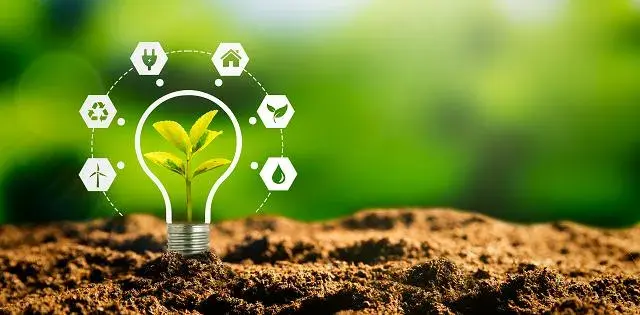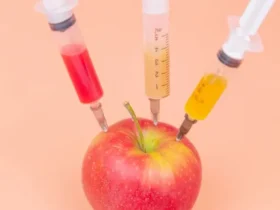While sustainable living and a gluten-free diet might, at first glance, appear to occupy separate spheres, a closer inspection reveals a substantial and often overlooked overlap. As global eco-consciousness gains momentum, there’s a growing realization that our food choices wield a profound impact on the environment.
One stark illustration of this lies in the world of gluten production, a sector that not only accounts for approximately 10% of global carbon emissions but also perpetuates ecological harm through conventional farming methods.
The Environmental Impact of Food Choices
With gluten production contributing a staggering 10% of worldwide carbon emissions, many forward thinking individuals are now reassessing their healthy gluten free diet. Assessing the ecological impact of our diet is imperative. Shifting to sustainable agriculture can reduce greenhouse gasses by up to 50% compared to conventional practices.
Some ways to reduce our carbon impact is by utilizing renewable energy sources, implementing water conservation measures, enhancing soil health through crop rotation, and avoiding synthetic pesticides and fertilizers.
Evaluating the resource-intensiveness of ingredients is crucial too. For example, the water footprint of wheat is over 6 times higher at 1,320 gallons per pound compared to just 217 gallons per pound for rice. As eco-conscious consumers, understanding how our everyday food choices strain vital natural resources is the first step to driving meaningful change through our purchasing decisions. Finding the best sustainable gluten free diet delivery can reduce overall carbon emissions while making a gluten free diet accessible to individuals wherever they are.
Source: Oxford
The production stage of our food accounts for over 25% of global greenhouse gas outputs. Standard farming practices deplete topsoil, pollute waterways with chemical runoff, and destroy carbon-sequestering forests. Shifting to regenerative agriculture techniques dramatically reduces environmental harms – and gluten-free crops are no exception.
An Oxford study analyzing over 40,000 farms found that compared to other forms of farming, agriculture has less total carbon emissions than animal farms
Gluten-Free Grains and Sustainability
When comparing commonly consumed grains, gluten-free quinoa has a 46% lower carbon footprint per pound than wheat. This is attributable to quinoa’s resilience, high yield, and lower chemical inputs. Other lesser-known ancient heritage grains offer sustainability benefits too.
Many such ancient grains deliver notably higher micronutrient levels than modern commodity crops, offering both human health and environmental wins. As extreme weather events intensify with climate change, the future favors sturdy heirloom gluten-free grains uniquely equipped to nourish people and the planet.
Prioritizing planet-friendly gluten-free staples sourced using organic regenerative techniques offers profoundly positive environmental returns. Conscious consumer dollars directly support agricultural best practices while voting for a sustainable future with our forks.
Eco-Friendly Packaging and Gluten-Free Products
The environmental toll of plastic waste, surpassing 8 million tons annually and clogging waterways, has become an urgent global concern. From buildings to automobiles, companies are now focusing on sustainable solutions to their products. This challenge extends to the gluten-free product sector, where packaging choices play a pivotal role. However, amidst this concern, innovative solutions are emerging, providing a glimmer of hope for a more sustainable future.
Sustainable packaging options include:
-
Compostable Materials:
Description: Compostable packaging materials represent a groundbreaking solution. Made from organic matter, these materials break down naturally, minimizing environmental impact.
Benefits: Reduces plastic waste, supports circular economy practices, and can be disposed of in compost facilities.
-
Biodegradable Plastics:
Description: Biodegradable plastics undergo degradation through natural processes, contributing to a reduction in persistent plastic pollution.
Benefits: Offers an alternative to traditional plastics, with the potential to break down more rapidly and less harmfully.
-
Recycled and Recyclable Packaging:
Description: Utilizing recycled materials for packaging and ensuring recyclability promotes a closed-loop system.
Benefits: Reduces the demand for new raw materials, minimizes energy consumption, and encourages recycling practices among consumers.
Navigating the intersection of gluten-free products and eco-friendly packaging, consumers wield considerable influence. By making informed choices and supporting brands dedicated to sustainable practices, individuals contribute to a paradigm shift in the packaging landscape—one that aligns with the urgent need for environmental stewardship.
Local Sourcing and Farmers’ Markets
One of the cornerstone principles of sustainable living involves minimizing the carbon footprint associated with the production and transportation of goods. When it comes to gluten-free products, opting for locally sourced items offers a significant ecological advantage.
The carbon footprint can shrink by up to 50% when consumers choose goods that haven’t traveled extensive distances to reach their shelves. This reduction in transportation emissions not only contributes to mitigating climate change but also supports the local economy.
The decision to buy locally sourced gluten-free products at farmers’ markets is a powerful step towards sustainable living. It’s a choice that resonates not only with personal health goals but also with a broader commitment to environmental stewardship and community support.
DIY Gluten-Free and Sustainable Recipes
Taking the eco-conscious ethos into your own kitchen furthers sustainability goals while empowering your health journey. Blend plant-proteins, ancient grains, and seasonal produce into gluten-free, low-impact meals. Upcycling leftovers slashes food wastage too – get creative!
Practical Tips for an Eco-Conscious Gluten-Free Lifestyle
Little everyday actions cultivate external change. In sustainable kitchens, aim for energy efficiency, watch water use, and compost organics. Read labels before purchases to detect hidden environmentally-taxing ingredients. Join community sustainability drives to magnify our collective positive impact.
Frequently Asked Questions (FAQs)
How can I find gluten-free products with eco-friendly packaging?
Check brand websites for sustainability commitments. Seek out labels like “compostable”, “biodegradable” and “recyclable”. Support B-Corps – certified businesses that meet environmental standards.
Are there specific gluten-free grains that have lower environmental impact?
Yes, gluten-free ancient grains like sorghum, millet and buckwheat generally require fewer resources. Quinoa also has an exceptionally low carbon footprint.
What are actionable steps to reduce my gluten-free diet’s environmental impact?
Local sourcing, reducing waste via freezing and preserving, meal planning to eliminate excess, energy efficiency in cooking, and seeking sustainably produced pantry items.
Final Takeaway
Conscious consumer choices play a pivotal role in shaping the future of food and agriculture. By opting for gluten-free grains with lower environmental impacts, consumers actively vote for a sustainable future with their forks. This demand-side influence can encourage more producers to adopt environmentally friendly practices.
The environmental benefits of gluten-free grains, especially those with ancient heritage, extend beyond individual health considerations. They encompass lower carbon footprints, water efficiency, adaptability to climate change, and support for regenerative agriculture. As global concerns about sustainability intensify, these grains emerge as key players in fostering a resilient and nourishing relationship between people and the planet.







Hello!! My name is Annabella
I love to eat, travel, and eat some more! I am married to the man of my dreams and have a beautiful little girl whose smiles can brighten anyone’s day!